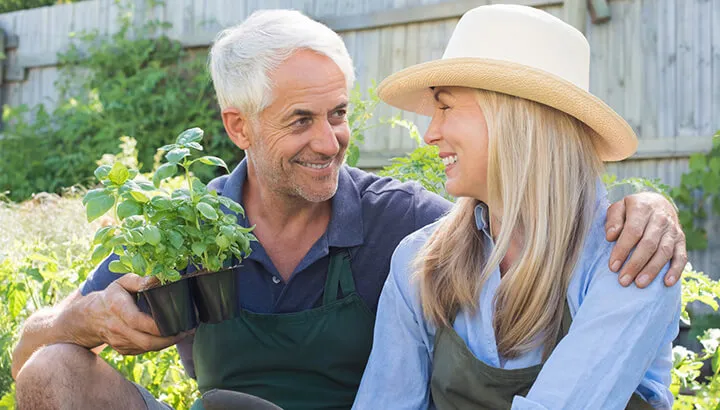
- Share on Facebook75
- Share on Pinterest
- Share on Twitter
If you’ve been reading Alternative Daily for any length of time, you’ve probably heard of lots of things which can lower inflammation in the body. There’s fish oil, turmeric or fresh leafy greens, just to name a few. You may have even heard about some mind-body practices, like yoga or meditation, which can affect the health of your body. But did you know that the emotions you experience on a daily basis also have a measurable effect on your inflammation levels?
One study shed light on a new concept which they’ve dubbed “emodiversity.” The researchers asked 175 adults between the ages of 40 and 65 to keep a daily journal for 30 days. The participants had to record how frequently and to what degree they felt a range of 32 different emotions, of which 16 were “positive” and 16 were “negative.” Six months after the study period, the researchers took blood samples from the participants and compared them for inflammation markers called IL-6, CRP and fibrinogen.
After accounting for differences such as BMI, demographics and medical conditions, the results showed that people who experience not just a greater quantity of positive emotions, but specifically a wider range of good feelings, exhibit lower inflammatory markers.
While many studies have linked negative emotion with higher systemic inflammation, looking at the ability of positive emotion to actually reduce or reverse inflammation is a relatively new concept. Another recent study supports this hypothesis and reported that amongst all the positive emotions, awe is the most able to create measurable decrease in inflammatory markers.
What are positive emotions?

Besides awe, other positive emotions were identified in the study. These included participants feeling:
- Enthusiastic
- Interested
- Determined
- Excited
- Amused
- Inspired
- Alert
- Active
- Strong
- Proud
- Attentive
- Happy
- Relaxed
- Cheerful
- At ease
- Calm
Experiencing more of these emotions can help you to manage stress, feel less depressed, become physically healthier and bounce back from negative life events more effectively. These effects can be measured by the levels of proteins that indicate inflammation, and have also been shown to be reflected in how well the immune system is functioning.
Why reducing inflammation is important
Okay, so we’re clear on how this works, but why is it so important to control inflammation? Turns out this process is likely at the root of most illness, including type 2 diabetes, rheumatoid arthritis, osteoporosis and heart disease. Therefore, it’s not surprising that heightened inflammation has been linked with premature death.
While this may feel a bit dark and dreary, the good news is you can take control of many of the factors that cause inflammation. And what’s even more interesting is that, since positive emotions are linked with reduced inflammation levels, it follows that all of the health-promoting activities also make you feel great. In the following section, we will explore a number of ways in which you can activate a wider range of positive emotions each day and combat inflammation as much as possible.
How to activate positive emotions
It is fully within your power to create a life rich in positive emotion, and therefore great health. Here are nine ways you can start doing this today.
1. Social connection

As humans, we are social creatures and connecting with others is one of the most important ways to feel well in our lives. This includes expanding your social circle in larger groups, as well as having more in-depth support from intimate relationships with close friends or loved ones.
2. Exercise
Move your body daily, whether it’s running, dancing or yoga. You could even combine your exercise with socializing to get a double-whammy benefit.
3. Nutrition

What you eat is definitely connected with your mood. Processed and fake foods heavy in trans fats, sugar and artificial ingredients can, not surprisingly, leave you feeling less than great. Focus on real, fresh foods to support positive emotions.
4. Sleep
Make sure you get a good night’s sleep each night as you will be more able to adapt and engage with life’s challenges and feel more positive overall.
5. Pets

The positive effects of having a pet has been well-researched. Get yourself a furry friend or offer to babysit someone else’s — you’ll get the same benefits.
6. Getting involved in something
It’s important to be involved in something bigger than yourself in order to feel engaged and purposeful in life. Try joining a community cause or volunteering for a charity close to your heart.
So far we’ve covered ways that you can create more varied experiences and positive emotions on a daily basis. But there’s another dimension to this: researchers pointed out that if you can identify a greater range of emotions, that means you are more reflective and able to notice what you are experiencing, and then analyze and qualify it.
Therefore, engaging in activities that not only allow you to experience a wider range of emotions, but also activities which give you space to slow down and be more introspective will be beneficial in building up your daily positive emotional repertoire. Here are four ways you can do this.
7. Mindfulness meditation

This well-studied self-awareness practice brings you into the present moment and allows you to notice what you are feeling.
8. Gratitude
Focusing on what is going well in your life increases your capacity and tendency to gravitate toward positive emotions. Changing your thinking is powerful; this study showed that cognitive behavioral therapy improved the emotional and psychological state of cancer patients, helping them better deal with stress and anxiety.
9. Rituals
Doing the same series of activities in the morning and evening allows you time for meditative self-care which can help you feel more in control of life. The result is more self-awareness and space for positive emotions.
Now that you know the incredible power of positive emotions, you can take control and create the life circumstances you need in order to experience them. Check out some more ideas for daily activities you can do to induce positivity.
— Liivi Hess
- Share on Facebook75
- Share on Pinterest
- Share on Twitter

